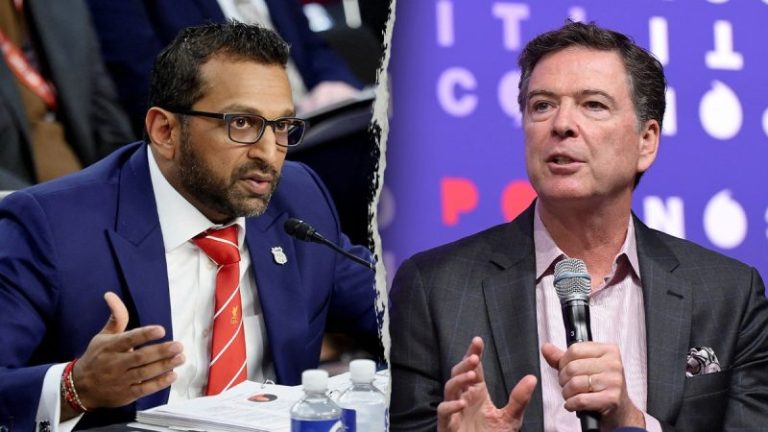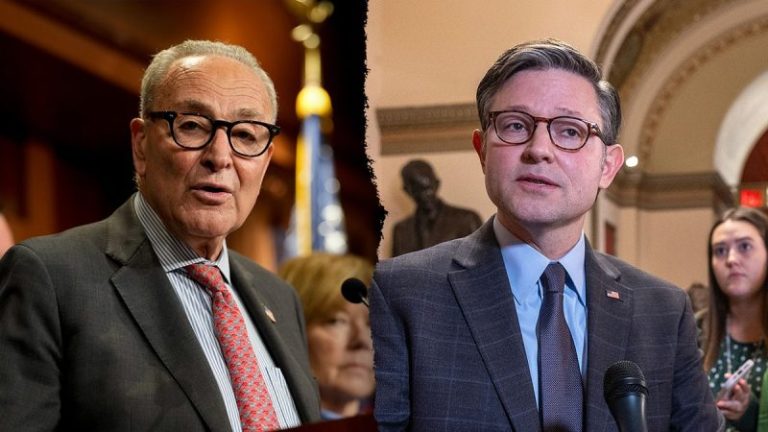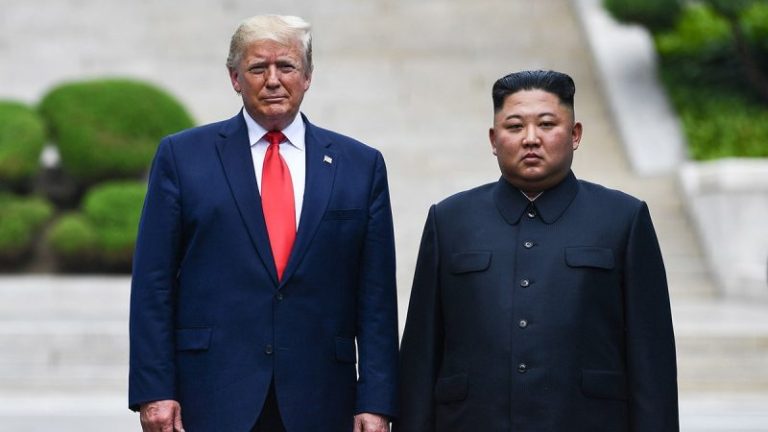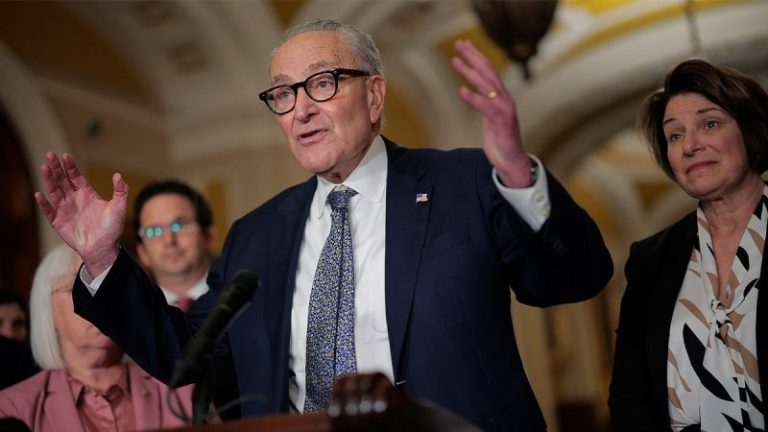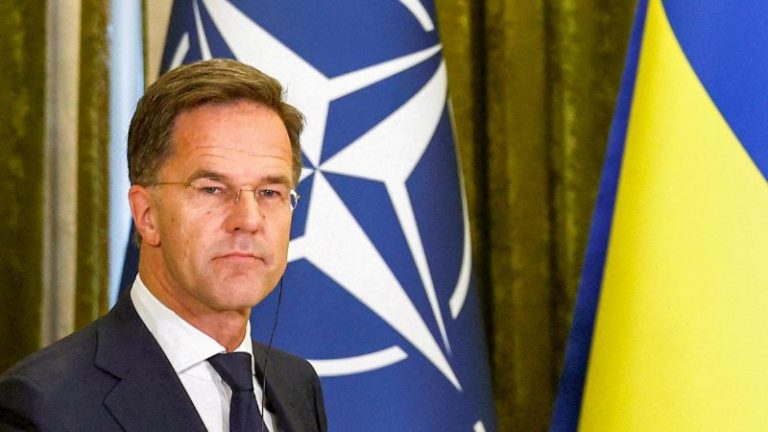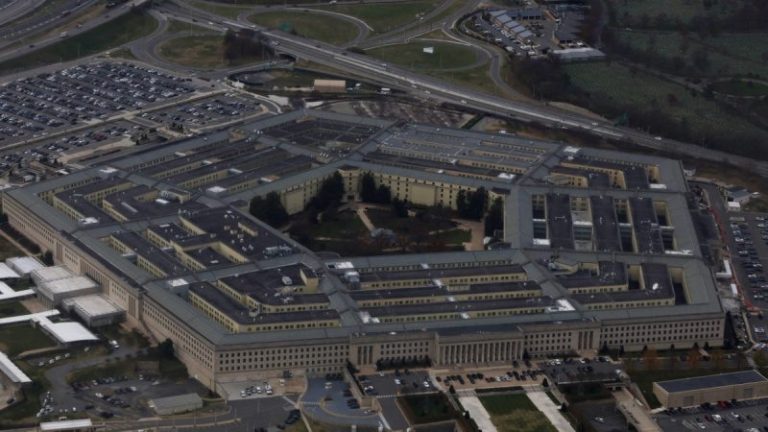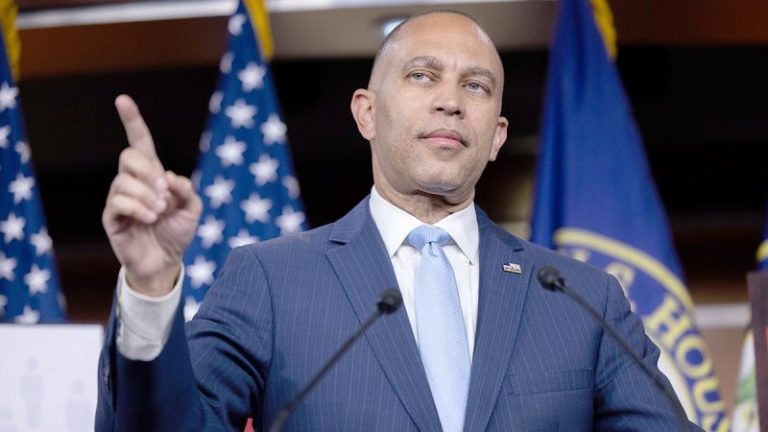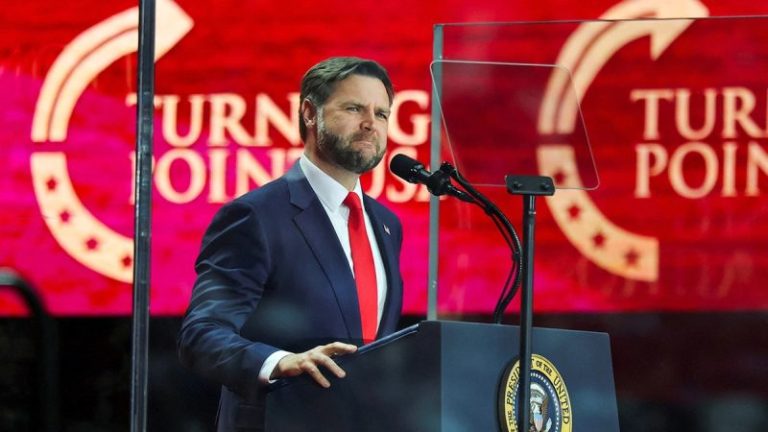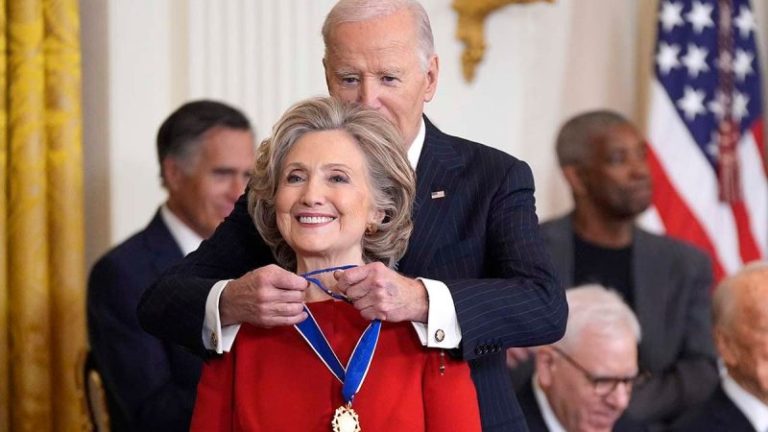Unearthed note cards from the Biden era show the administration detailed the names and photos of high-profile Democrats, such as former Secretary of State Hillary Clinton, as well as lesser-known individuals for then-President Joe Biden to ostensibly reference during live events, documents obtained by Fox News Digital show.
Five different ‘palm cards,’ which are hand-sized note cards frequently used by politicians for quick reminders or talking points during public events, especially while on the campaign trail, were uncovered amid an investigation of National Archive documents related to the Biden administration’s use of an autopen, and obtained by Fox News Digital.
Four of the five cards obtained by Fox Digital are stamped with a disclaimer reading, ‘PRESIDENT HAS SEEN,’ while a fifth card detailing an ABC News reporter’s question to Biden during a press conference did not include that stamp.
It is unclear if Biden relied on each of the cards during the various public events. Fox News Digital reached out to Biden’s office for any comment and clarification on the use of the cards but did not immediately receive a reply.
Clinton was among a handful of Americans who received a Presidential Medal of Freedom, the highest civilian honor in the U.S., in the waning days of the Biden administration. One of the palm cards obtained by Fox Digital reads ‘Presidential Medal of Freedom Recipients’ and was followed by photos and short biographies of the recipients, including a photo of Clinton and a short note detailing she ‘was the Secretary of State in the Obama-Biden administration.’
The note card also included a photo of Hollywood actor Denzel Washington, who also received the prestigious award in January, and a note describing him as an actor, director and producer whom the New York Times called ‘one of the greatest actors of the 21st century.’ The note also had photos and short bios for lesser known individuals who received the award, including renowned chef José Andrés and businessman and philanthropist David Rubenstein.
Another palm card simply reading, ‘Judicial Confirmations Milestone Speech,’ showed a photo of Schumer and a separate photo of Senate Majority Whip Dick Durbin accompanied by the roles in the Senate, their party and the states they represent. The card included a stamp reading, ‘PRESIDENT HAS SEEN.’
Biden celebrated his administration confirming 235 judicial nominees in January in a speech from the State Dining Room and was joined by Schumer and Durbin during the event. Durbin and Schumer also held other public events celebrating the Biden administration’s judicial confirmation strides earlier in Biden’s Oval Office tenure.
Another palm card listed out various family members of Hollywood legend Francis Ford Coppola ahead of the 47th Kennedy Center Honors in December 2024 that honored ‘The Godfather’ director.
A fourth palm card was timestamped ‘Saturday, January 18 Greets,’ and showed a photo and short bio of White House Historical Association President Stewart McLaurin, as well as another section reading, ‘Pritzker Family,’ which displayed a photo of Democratic Illinois Gov. JB Pritzker, and photos and explainers on Pritzker’s wife, son and daughter, Fox News Digital found. A photo of the palm card also read ‘PRESIDENT HAS SEEN.’
It is unclear if Pritzker visited the White House Jan. 18, which fell on a Saturday.
The fifth card detailed a question from ABC News’ reporter Mary Bruce. A handwritten note on the card states ‘Question #3.’
‘2024: How do YOU view the path forward? How do YOU think about YOUR place in history?’ the card reads.
‘Speaker McCarthy/Debt Limit: Depending on what happens with the House vote on the Speaker’s debt limit bill tomorrow, do do YOU anticipate moving forwards?’
A Fox News Digital review found that the ABC News journalist asked Biden about his re-election effort during a joint press conference with the South Korean president April 26, 2023, in the Rose Garden. Bruce was the third reporter to ask Biden a question during the press conference, which fell on the same day House Republicans approved a bill to increase the debt ceiling.
‘My turn to ask a question? I think the next question is Mary Bruce, ABC,’ Biden said during the press conference.
Bruce asked, ‘You recently launched your reelection campaign. You’ve said questions about your age are ‘legitimate.’ And your response is always, ‘Just watch me.’ But the country is watching, and recent polling shows that 70 percent of Americans, including a majority of Democrats, believe you shouldn’t run again. What do you say to them? What do you say to those Americans who are watching and aren’t convinced?’
‘You’ve said you can beat Trump again. Do you think you’re the only one?’ she added.
Biden’s use of palm cards has long been documented, including during the April 2023 press conference with Bruce. Fox News Digital previously reported that Biden flashed a separate card showing the photo, name and name pronunciation of Los Angeles Times journalist Courtney Subramanian, while noting the card was part of ‘Question #1.’
Subramanian asked the first question during the press conference, with Biden calling on ‘Courtney of the Los Angeles Times.’
Biden flashed another palm card showing photos of reporters, accompanied by their outlets and roles, during a joint press conference with the Australian prime minister in October 2023. At his first formal press conference as president in March 2021, Biden was seen handling a card that had statistics and talking points to use.
In another image, Biden was consulting a list of preselected reporters along with their photos, Fox Digital previously reported.
Politicians long have used palm cards while on the campaign trail. Biden’s use of the cards while serving as president added fuel to the fire of concern over his mental acuity, though, including Axios reporting in 2024 that donors were spooked by Biden’s reliance on the notes.
The White House pointed to President Donald Trump’s public events where he routinely takes questions from journalists off the cuff when asked about Trump’s potential use of palm cards.
‘President Trump gives unfettered access to the media and answers every question imaginable, without pre-screening the press questions or collecting reporters’ palm cards ahead of time like his incompetent predecessor,’ White House spokeswoman Taylor Rogers told Fox Digital Tuesday when approached for comment. ‘Unlike Joe Biden, President Trump is actually running our country, and he doesn’t ever shy away from taking on the fake news to deliver the truth.’
A senior White House press official added to Fox News that the press office ‘does not prepare any reporter palm cards’ and that the team does not ‘ask for reporters to submit their questions to the president ahead of time.’
The Biden administration is currently facing scrutiny over the use of an autopen to sign official documents — including for clemency orders, executive orders and other official documents. The use of the autopen follows years of mounting concern that Biden’s mental acuity and health were deteriorating, which hit a fever pitch during the 2024 campaign cycle following the president’s disastrous debate performance against Trump.
Biden ultimately dropped out of the presidential race as the concerns mounted.
Since reclaiming the Oval Office, Trump has balked at his predecessor’s use of the autopen, claiming Biden’s staff allegedly used the pen to sign off on presidential actions unbeknownst to Biden. Trump ordered an investigation into the use of the autopen under the Biden administration back in June.
Fox News Digital’s Lindasy Kornick contributed to this report.
This post appeared first on FOX NEWS

